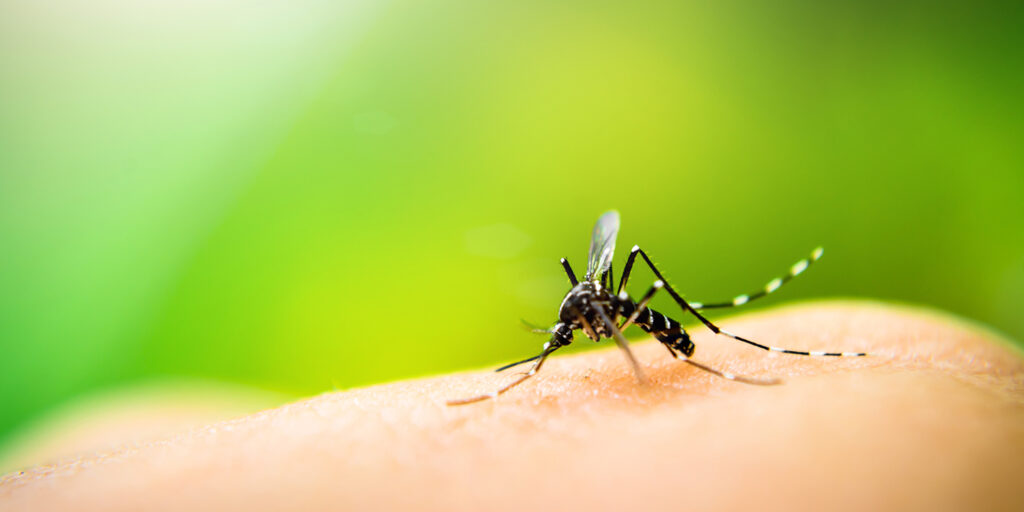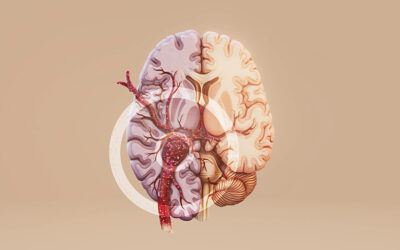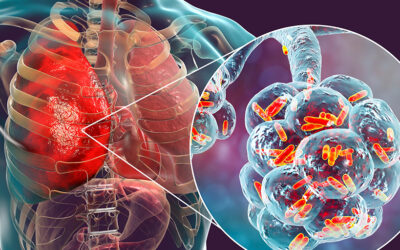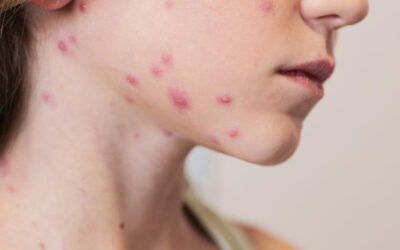Malaria: Causes, Symptoms, Diagnosis and Treatment Options

Malaria remains a major health concern in many parts of India, especially during the rainy season when mosquito numbers go up. Every year, thousands of people fall sick due to this infection, and in some cases, it can become serious if not treated on time. While it is both preventable and treatable, awareness about its early signs, testing, and treatment is still very important. This article explains the common causes of malaria, its signs and symptoms, how it is diagnosed, and the treatment options available so that it can be recognised and managed before complications arise.
Table of Contents
ToggleWhat Is Malaria?
Malaria is a serious mosquito-borne disease caused by parasites that enter the bloodstream through the bite of an infected female Anopheles mosquito. Once inside the body, the parasite travels to the liver, multiplies, and then re-enters the bloodstream where it begins to infect red blood cells. This leads to periodic cycles of fever and chills, along with other flu-like symptoms. The disease is prevalent in tropical and subtropical regions, including large parts of India. Although treatable, malaria can become severe and even life-threatening if left undiagnosed or improperly managed.
How does Malaria Spread?
Apart from mosquito bites, malaria can also spread through other, less common routes, such as:
- Blood transfusions from an infected donor
- Sharing of contaminated needles or syringes
- Congenital transmission from a pregnant mother to her baby
Note: Malaria is not spread through casual contact, coughing, or sharing food. Preventing mosquito bites remains the most effective way to stop transmission.
Types of Malaria and Their Impact
The type of malaria a person contracts depends on the species of parasite involved. Each type presents with varying severity, relapse patterns, and treatment responses:
- Plasmodium falciparum malaria: Known for its rapid progression and severe complications such as cerebral malaria, kidney failure, and breathing difficulties. It is a medical emergency requiring immediate treatment.
- Plasmodium vivax malaria: Frequently seen in India, this type often causes recurrent episodes due to dormant liver-stage parasites (hypnozoites). Though less fatal than P. falciparum, repeated relapses can lead to chronic fatigue and anaemia.
- Plasmodium malariae malaria: A rarer form that may persist at low levels in the blood for years, potentially leading to long-term kidney damage.
- Plasmodium ovale malaria: Not commonly seen in India. This form can also remain dormant in the liver and cause relapses after the initial infection subsides.
- Plasmodium knowlesi malaria: A zoonotic type of malaria found in some parts of Southeast Asia. It progresses rapidly and mimics P. falciparum, requiring close monitoring.
Understanding the type of malaria is crucial for selecting the right treatment approach and preventing future relapses.
Symptoms of Malaria
Malaria symptoms typically appear 10 to 15 days after a person is bitten by an infected mosquito. However, in some cases, especially with Plasmodium vivax, the parasite can remain dormant and symptoms may surface weeks or even months later. The most common signs and symptom of malaria is fever, which often comes in cycles and may be accompanied by:
- Chills and rigours
- Sweating
- Headache
- Muscle aches
- Fatigue and weakness
- Nausea and vomiting
In moderate to severe cases, malaria can lead to:
- Anaemia due to destruction of red blood cells
- Jaundice from liver involvement
- Confusion or seizures, particularly in cerebral malaria
- Breathing difficulty and multi-organ complications in advanced infections
Note: Children, pregnant women, and individuals with weakened immune systems are more susceptible to complications. Timely diagnosis is essential to prevent serious outcomes.
Malaria vs Dengue
Malaria and dengue are two of the most common mosquito-borne diseases in India. While both cause high fever and flu-like symptoms, they differ significantly in terms of causative agents, transmission, and clinical features. Here’s how they are differ:
- Cause:
- Malaria is caused by Plasmodium parasites transmitted by Anopheles mosquitoes.
- Dengue is caused by the dengue virus, transmitted by Aedes aegypti mosquitoes.
- Fever Pattern:
- Malaria typically causes cyclical fever with chills and sweating.
- Dengue fever is usually continuous and high-grade, often called “breakbone fever” due to intense body pain.
- Key Symptoms:
- Malaria: chills, fatigue, anaemia, and sometimes jaundice.
- Dengue: severe joint and muscle pain, skin rash, bleeding gums or nosebleeds.
- Laboratory Findings:
- Malaria is confirmed with a blood smear or rapid antigen test for parasites.
- Dengue is diagnosed with NS1 antigen, IgM/IgG antibodies, or PCR for viral RNA.
- Complications:
- Malaria: cerebral malaria, kidney or liver failure.
- Dengue: low platelet count, dengue haemorrhagic fever, or shock syndrome.
Due to symptom overlap, especially during the monsoon, accurate testing is critical to distinguish between the two for proper treatment.
Malaria Diagnosis and Testing
Early and accurate diagnosis of malaria is crucial for effective treatment and prevention of complications. Several diagnostic methods are available, depending on clinical suspicion and healthcare setting. Common malaria tests include:
- Microscopic Blood Smear: The gold standard for malaria diagnosis. A drop of blood is examined under a microscope to detect Plasmodium parasites and determine the specific type and parasite load.
- Rapid Malaria Test (RDT): A quick diagnostic tool that detects parasite-specific antigens in the blood. It is especially useful in areas where laboratory access is limited, but it may not differentiate all species.
- Malaria Antigen Detection: Identifies the presence of Plasmodium proteins in the bloodstream. These tests are often used to support RDT findings or for further confirmation.
- Polymerase Chain Reaction (PCR): A highly sensitive test that detects parasite DNA. It’s primarily used in research or specialised centres and can confirm the species in low-parasite infections.
Note: In cases where malaria is suspected but test results are inconclusive, repeat testing may be advised. Correct diagnosis not only confirms infection but also guides the choice of appropriate antimalarial drugs.
Malaria Treatment Options
The treatment of malaria depends on the Plasmodium species involved, the severity of the infection, and the patient’s age and overall health. Most cases can be effectively treated with antimalarial drugs, especially when diagnosed early. Commonly used medications include:
- Artemisinin-based combination therapies (ACTs): These are the frontline treatment for Plasmodium falciparum malaria. They combine fast-acting artemisinin with a longer-acting partner drug to clear the parasites and prevent resistance.
- Chloroquine: Effective for Plasmodium vivax in regions where resistance is low. It works by interfering with the parasite’s ability to digest haemoglobin.
- Primaquine: Used to kill dormant liver stages of P. vivax and P. ovale to prevent relapse. A G6PD test is often required before starting this drug to avoid complications.
- Quinine and other second-line drugs: Used for severe or drug-resistant cases, often in hospital settings under close monitoring.
Treatment may last from 3 to 14 days, depending on the parasite species and drug regimen. Hospitalisation is required in severe cases involving complications such as organ failure, cerebral malaria, or pregnancy-related infections.
Malaria in Children
Children are particularly vulnerable to malaria due to their developing immune systems, making early diagnosis and prompt treatment essential. In endemic regions, repeated infections can also impact growth and cognitive development.
Key concerns in paediatric malaria include:
- Rapid progression: Symptoms such as fever, vomiting, drowsiness, or poor feeding can quickly lead to complications.
- Higher risk of severe outcomes: Children are more prone to develop anaemia, convulsions, breathing difficulties, or cerebral malaria.
- Atypical presentation: Unlike adults, children may not always show classic cyclical fevers, making recognition more difficult.
Treatment in children is tailored to age and weight, with careful dosing of antimalarial drugs such as ACTs or chloroquine. In some cases, hospitalisation is recommended for close monitoring, especially if dehydration or severe symptoms are present.
Malaria Complications: When It Becomes Severe
While many malaria cases resolve with timely treatment, the infection can progress to life-threatening complications, particularly with Plasmodium falciparum. Severe malaria occurs when the parasite load is high or when treatment is delayed, leading to widespread organ dysfunction.
Common complications include:
- Cerebral malaria: Inflammation of the brain that may cause seizures, confusion, or coma. This is one of the most serious forms and requires urgent intensive care.
- Severe anaemia: Due to extensive destruction of red blood cells, leading to fatigue, breathlessness, and poor oxygen delivery to organs.
- Jaundice and liver dysfunction: Often accompanied by yellowing of the skin and eyes.
- Kidney failure: Especially in adults with falciparum malaria, where toxic waste builds up in the blood.
- Breathing difficulties: Resulting from metabolic acidosis or pulmonary oedema.
- Multi-organ failure: A rare but fatal outcome without aggressive treatment.
People with weakened immune systems, young children, and pregnant women are more prone to complications. Hospitalisation, intravenous medications, and supportive care are often necessary in these cases to avoid long-term damage or death.
Malaria Prevention: Protecting Against Mosquito Bites
Preventing mosquito bites is the most effective way to reduce the risk of malaria. Since malaria-transmitting Anopheles mosquitoes are most active between dusk and dawn, protective measures during these hours are essential.
Recommended preventive strategies include:
- Insecticide-treated bed nets (ITNs): Sleeping under ITNs significantly reduces mosquito contact, especially in rural and high-risk areas.
- Mosquito repellents: Applying creams or sprays containing DEET, picaridin, or natural oils can help keep mosquitoes at bay.
- Protective clothing: Wearing long sleeves and trousers in the evenings helps reduce exposed skin.
- Indoor spraying: Using insecticide sprays or plug-in vapourisers can reduce mosquito populations indoors.
- Eliminating stagnant water: Emptying water containers, cleaning drains, and covering tanks prevent mosquito breeding around homes and neighbourhoods.
- Preventive medication: In certain situations, such as travel to high-risk zones, prophylactic antimalarial drugs may be advised under medical supervision.
Living in a Malaria-Endemic Area: Tips and Lifestyle Measures
For individuals living in or frequently travelling to malaria-endemic areas, staying vigilant and adopting practical lifestyle habits can significantly lower the risk of infection and aid recovery if infected.
Helpful tips include:
- Create a mosquito-safe environment: Install window screens, use bed nets, and avoid outdoor activities after sunset when mosquito activity peaks.
- Support the immune system: Maintain a balanced diet rich in seasonal fruits, green vegetables, and iron-rich foods to help the body fight infections and recover from malaria-related anaemia.
- Stay hydrated: Fever and vomiting can cause fluid loss, so drinking enough water, coconut water, or oral rehydration solutions (ORS) is important during illness.
- Rest adequately: Fatigue and weakness can persist even after treatment. Prioritising rest helps the body heal and reduces chances of relapse.
- Monitor for recurrence: With P. vivax infections, symptoms can return weeks later. Stay alert to any returning fever or chills and consult a doctor promptly.
- Comply with full treatment: Even if symptoms improve, completing the full antimalarial course, especially if prescribed Primaquine, is critical to prevent relapse and clear liver-stage parasites.
When to See a Doctor
While mild fever and body aches are common during seasonal changes, certain symptoms should never be ignored, especially in areas where malaria is prevalent. Early medical attention can prevent complications and ensure effective recovery.
Consult a doctor immediately if there is:
- High-grade fever that comes and goes in cycles, especially with chills and sweating
- Persistent vomiting, severe weakness, or inability to eat or drink
- Yellowing of the eyes or skin (jaundice)
- Confusion, seizures, or loss of consciousness, which may suggest cerebral malaria
- Breathing difficulty, rapid heart rate, or signs of organ involvement
Children, pregnant women, elderly individuals, and people with existing health conditions or a compromised immune system should seek medical care at the earliest sign of malaria. Prompt diagnosis and treatment not only improve outcomes but also help control transmission in the community.
How Graphic Era Hospital Helps Manage Malaria
Graphic Era Hospital offers comprehensive care for malaria, combining accurate diagnostics, timely treatment, and patient-centred support for individuals across all age groups.
Here’s how the hospital ensures effective malaria management:
- Expert Evaluation and Rapid Testing: The hospital is equipped with facilities for malaria blood tests, rapid diagnostic tests (RDTs), and microscopic smear analysis to quickly identify the parasite and its type.
- Personalised Antimalarial Treatment: Based on the diagnosis, specialists tailor treatment plans using the latest antimalarial drugs such as ACTs, chloroquine, or Primaquine, ensuring proper dosing and complete parasite clearance.
- Integrated Care for Complications: For patients with severe symptoms, such as organ failure, cerebral malaria, or prolonged fever, multispecialty teams provide round-the-clock care, including ICU support when needed.
- Paediatric and High-Risk Patient Care: Special attention is given to children, pregnant women, and those with weakened immunity, ensuring close monitoring and safe treatment protocols.
- Patient Education and Follow-Up: The hospital guides patients on post-treatment care, relapse prevention, and lifestyle modifications to aid recovery and prevent re-infection.
With its experienced medical team and commitment to quality care, Graphic Era Hospital remains a trusted centre for malaria diagnosis and treatment in the region.
Final Word
Malaria is a preventable and treatable disease, yet it continues to pose a health risk in many parts of India. Recognising symptoms early, getting a proper diagnosis, and completing the full course of treatment are key to avoiding serious complications. For timely diagnosis, expert consultation, and personalised malaria treatment, connect with the specialists at Graphic Era Hospital. Call 18008897351 to book an appointment and receive the care you can trust.
Frequently Asked Questions
What are the first symptoms of malaria infection in children?
The initial signs in children may include high fever, irritability, vomiting, poor feeding, and drowsiness. Unlike adults, they may not always show classic cyclical chills and sweating.
How long does it take to recover from malaria fever?
Recovery time varies depending on the Plasmodium species and treatment used. Most patients begin to feel better within 3 to 5 days of starting antimalarial drugs, but complete recovery may take 1 to 2 weeks, especially if there are complications like anaemia.
Which mosquito causes malaria in India?
Malaria is spread by the bite of infected female Anopheles mosquitoes, which are widely present across various regions of India.
What is the role of Primaquine in malaria treatment?
Primaquine is used to eliminate dormant liver stages of Plasmodium vivax and P. ovale, helping prevent relapses. It is usually prescribed after the initial treatment phase and requires a G6PD test before use.
How accurate is the rapid malaria test?
Rapid malaria tests (RDTs) are generally reliable for detecting Plasmodium falciparum and P. vivax. However, confirmatory blood smear or antigen testing may still be needed in some cases for species identification or low-level infections.
Is malaria contagious through contact?
No, malaria is not spread through person-to-person contact. It is transmitted exclusively through the bite of an infected mosquito, or rarely through contaminated needles or blood transfusion.
What are the most effective methods for malaria prevention?
Malaria prevention focuses on avoiding mosquito bites, especially in high-risk areas. Key measures include using insecticide-treated bed nets, applying mosquito repellents, wearing protective clothing, and eliminating stagnant water around the home. In some cases, preventive antimalarial medication may also be recommended.
Is there a malaria vaccine available in India?
A malaria vaccine known as RTS,S/AS01 has been developed and is being introduced in select regions with high transmission, mainly in Africa. While it has shown promise in reducing severe cases in children, it is not yet widely available in India. Research continues to improve vaccine coverage and efficacy.
How serious is malaria disease if left untreated?
Malaria can lead to serious health complications if not diagnosed and treated promptly. It may cause severe anaemia, jaundice, breathing difficulty, or even organ failure. In certain cases, especially with Plasmodium falciparum, the disease can be life-threatening.
Malaria is caused by which mosquito?
Malaria is transmitted by the bite of an infected female Anopheles mosquito, which carries Plasmodium parasites. These mosquitoes are most active during dusk and dawn, making protective measures especially important during these hours.
Where can I get a malaria test near me?
Malaria tests are available at most hospitals, diagnostic centres, and pathology labs across India. For accurate and timely diagnosis, visit a trusted medical facility near you. Graphic Era Hospital offers malaria blood tests and rapid diagnostic testing with expert consultation—call 18008897351 to book an appointment.
By Specialities
- Bariatric Surgery
- Cancer Care
- Cardiology
- Dental
- Dermatology
- Diabetes & Endocrinology
- Endocrinology and Diabetes
- ENT (Ear Nose Throat)
- Eye Care
- Gastroenterology
- Haematology
- Health Awareness
- Health Care
- Health Tips
- Hematology
- Hepatology
- Internal Medicine
- Mental Health and Behavioural Sciences
- Metabolic
- Neonatology
- Nephrology
- Neurology
- Nutrition & Dietetics
- Obstetrics & Gynaecology
- Oncology
- Ophthalmology
- Orthopaedics
- Paediatric
- Physiotherapy & Rehabilitation
- Plastic and Reconstructive Surgery
- Psychology
- Pulmonology
- Rheumatology
- Spine
- Urology
Recent Posts
- A Complete Guide to Blood Clots in the Brain
- Heart Attack: Symptoms and Treatment
- World Obesity Day 2026: Understanding, Preventing, and Managing Obesity
- Bacterial and Viral Pneumonia: Causes, Symptoms, and Treatment Options
- World Hearing Day 2026: Empower Yourself to Protect and Improve Your Hearing
Need expert medical advice?
Share your details and our healthcare specialists will reach out to assist you.
By proceeding, you acknowledge and agree to our Privacy Policy, Terms of Use, and Disclaimer.




















